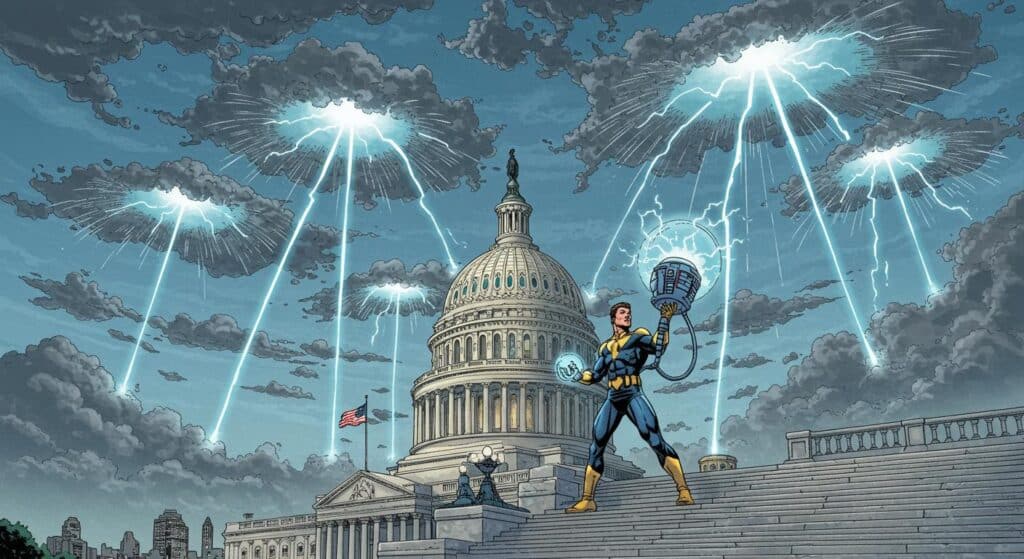You know that moment when you’re juggling a beach chair, three bags, and maybe the existential weight of needing a break, and all you want is to pay for parking and make it to the water? Imagine dutifully paying your $20 online—only to find a ticket on your windshield, because your phone, in a fit of misguided helpfulness, decided “FWW” clearly meant “FEW.” As News 6 WKMG uncovered, this autocorrect slip sent one Florida beachgoer’s parking payment about a thousand miles off target—straight to Detroit.
When Autocorrect Becomes Auto-Redirect
The saga began innocently at Volusia County’s Toronita Avenue Beach Park, where Patricia Dennis tried to use the county’s new text-to-pay system. To pay at off-beach lots, visitors must punch in a three-letter location code (in this case, FWW) to a designated number. County officials told News 6 that when Dennis typed in the code, her phone’s autocorrect swapped “FWW” for “FEW.” The result? Her link pointed not to the sun-soaked sands of Florida, but to a payment site affiliated with Smart Park, a Detroit parking operation.
As News 6 detailed, nothing about the website that popped up gave Dennis a hint she’d been whisked 1,000 miles north—there was, apparently, a subtle logo and a Detroit address, but would anyone notice that while balancing all their beach gear and fending off the heat? Dennis herself admitted to the outlet, “I don’t know that I’ve ever been to Detroit,” and bank records later confirmed, as the investigation documents, that her $20.40 went straight into the Motor City’s parking coffers.
Administrative Labyrinth: Please Mind the Gap
Of course, Volusia County’s auto-magic license plate reader failed to find any record of her beach payment. With the system missing her transaction, a citation followed—the sort of bureaucratic inevitability that feels both modern and medieval. Described in News 6’s reporting, Dennis attempted to appeal through the Park Volusia website, but her effort yielded only a quick denial. While an additional appeal process exists, where one could petition a special magistrate, Dennis told the outlet that she didn’t pursue that route. Instead, she mailed in $120 to cover the fine and late fees—a price hike courtesy of the digital error and the slow grind of the dispute process.
It was only after Dennis reached out to News 6 that the fateful phone typo drew scrutiny. The outlet reports that just two days after a News 6 reporter raised the case with Volusia officials, the county acknowledged the autocorrect issue, dismissed Dennis’s ticket, and refunded her payment. Officials acted quickly to swap the original “FWW” code for the less autocorrect-prone “FW1,” with fresh stickers now dotting the Toronita lot signs for clarity. The county hasn’t offered numbers on how many other citations might have been rescinded over similar autocorrect detours, but indicated to News 6 that this was, so far, the only lot with a chronic code issue.
Digital Systems, Human Quirks
So why the reliance on three-letter codes, and why trust phones to leave human intent untouched? As Michael Ryan, Volusia County’s director of community information, told News 6, “this is new technology and the community is still learning.” There’s an unmistakable tug-of-war here: progress prods us toward more automated, “frictionless” systems while old-fashioned glitches—like autocorrect’s flourishes—offer reminders that technology sometimes has the sensitivity of a caffeinated cat. Should we reasonably expect a system to anticipate every accidental text mutation? Or maybe, after a few years of QR codes, we’ve come to trust machines a little too much to recognize context.
It raises the question: if a single missed detail can redirect a payment from the Atlantic shore to a vacant lot near a Detroit basketball arena, how many other small tech fumbles are quietly extracting extra dollars—or just time—from our days? Is it any wonder some of us still keep a modest parking meter fund rattling around the center console?
A Comedy of Modern Errors
The notion of getting a ticket because your phone thinks you’d rather type “few” than a random string of capital letters sounds like a sketch straight from a bureaucratic sitcom. Yet here we are. As Spot On Florida recaps, this peculiar tale started with good intentions—streamlining parking payment and cutting red tape—but unwittingly created new wrinkles. Autocorrect takes a helpful swing and misses, the online appeal process offers little recourse, and the back-and-forth traverses not just state lines, but something close to a logic gap.
Maybe the real marvel is that county staff responded nimbly when tipped off (and that, for once, the “call your local news station” move paid off in record time). Still, it’s curious—how many other autocorrect mishaps have played out with less satisfying endings, quietly swallowed by late fees and digital process errors that, in theory, should have vanished with the advent of “smart” tech?
As we keep nudging society toward touchless transactions and algorithmic convenience, are we gaining or losing ground to the absurd? I’m left wondering—not for the first time—if one day autocorrect will simply decide that “FW1” ought to be “FUN,” and send us chasing down refunds from who knows where. For now, it’s one more tiny reminder to read the fine print…and maybe, just maybe, disable autocorrect before you park.







